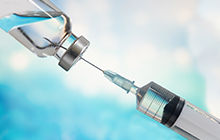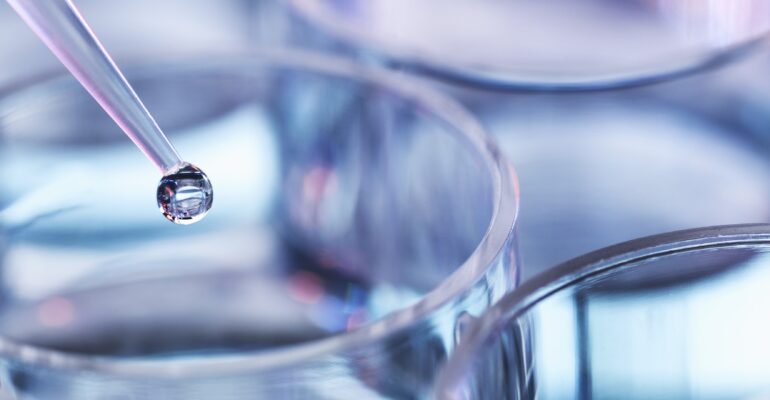 Below we provide an update on several ophthalmic anti-VEGF therapeutics currently being studied in clinical trials.
Below we provide an update on several ophthalmic anti-VEGF therapeutics currently being studied in clinical trials.
EYLEA® HD (Aflibercept, 8 mg)
Regeneron announced positive two-year (96 weeks) results from its PULSAR trial investigating Eylea® HD (aflibercept, 8 mg) with 12- and 16-week dosing regimens compared to EYLEA® (aflibercept, 2 mg) in patients with wet AMD. One of the trial investigators, Charles C. Wykoff, M.D., Ph.D., said that “[t]hese two-year outcomes from PULSAR show that EYLEA HD can deliver sustained and consistent visual and anatomic benefits with extended dosing intervals in the longer-term – helping to reduce the treatment burden for patients with exudative retinal diseases and reinforcing the potential of EYLEA HD as a new standard of care.” Regeneron had previously announced that “EYLEA HD demonstrated durable vision gains at extended dosing intervals at the end of two years, with the mean number of injections administered being 9.7 for the 12-week EYLEA HD group, 8.2 for the 16-week EYLEA HD group, and 12.8 for the EYLEA group.” For Eylea® HD patients who completed the two-year follow-up, “88% were on a ≥12-week dosing interval at the end of two years, with 71% meeting the extension criteria for ≥16-week dosing intervals” and, for patents assigned to ≥16-week dosing at baseline, “78% were eligible for ≥16-week dosing at the end of two years, with 53% eligible for ≥20-dosing week intervals.” Additionally, EYLEA® HD showed similar safety results to Eylea® at the two-year mark.
SB15 (aflibercept)
Samsung Bioepis announced a post-hoc analysis of the Phase 3 clinical study results for SB15, its proposed biosimilar to EYLEA® (aflibercept). The study demonstrated that “switching to SB15 from [aflibercept] maintained comparable clinical efficacy and safety in treating patients with neovascular age-related macular degeneration (nAMD), confirming biosimilarity between these agents before and after switching.” The company said “[w]e are pleased to present the switching data of SB15 from reference aflibercept that continues to demonstrate its comparable clinical efficacy and safety in treating patients with nAMD. We hope the study results also help allay concerns over safety and efficacy of biosimilars for their use in patients who were previously treated with reference product.”
Along with SB15, Samsung Bioepis and Biogen are working to commercialize another ophthalmic biosimilar—SB11, a biosimilar to ranibizumab. However, there have been reports that Indian drugmaker Intas Pharmaceuticals is in talks with Biogen to purchase Biogen’s biosimilar division, which would include SB15 and SB11.
IBI302 (Efdamrofusp Alfa)
Innovent announced that “the first patient with neovascular age-related macular degeneration (nAMD) has been successfully dosed in the Phase 3 clinical study (STAR) of efdamrofusp alfa (IBI302), a recombinant fully human anti-VEGF and anti-complement bispecific fusion protein.” The STAR study is designed to evaluate the safety and efficacy of intravitreal 8 mg IBI302 in patients with nAMD in support of a potential NDA. The patients will be randomized to either 8 mg IBI302 or 2 mg aflibercept, and the primary endpoint of the study will be “change from baseline in best corrected visual acuity (BCVA) letters in the study eye based on an average at week 44, 48, and 52.” According to Innovent, IBI302 is a “first-in-class bispecific fusion protein targeting VEGF and complement” that “can simultaneously inhibit VEGF-mediated signaling pathways and attenuate inflammatory responses mediated by complement activation.” The company said that IBI302 has a favorable overall safety profile that is “similar to existing anti-VEGF agents.”

